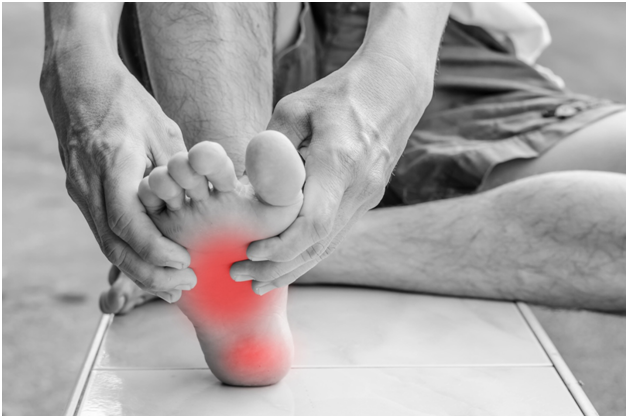Do you get home from work every day with incredibly sore feet? Are you constantly trying new shoes, but none of them seem to work?
This is a clear sign that you may want
to try orthopedic shoes. There are many benefits to doing so, but the most
rewarding is being able to be on your feet as long as you want with no pain.
Doesn’t that sound nice? Read on to
learn seven signs that suggest you may be a candidate for orthopedics.
1.
Foot Pain or Swelling
Many people think that foot pain is
just a part of life, especially a part of working life. Yet, you do not need to
live with unnecessary foot pain, and this is not normal.
If they can’t, your podiatrist will
investigate what could be causing your pain and discomfort, which means pain
relief for you either way.
2.
Sharp Heel Pain
Alleviating sharp heel pain is one
of the most significant benefits that orthopedic shoes can do for you, and if
you experience it, it’s a clear sign that you should visit an orthopedic shoe
store.
Having a sharp pain in your heel,
especially when felt first thing in the morning, may indicate plantar
fasciitis. This is inflammation in the thick band of tissue that connects your
heel bone to your toe bones, which runs across the bottom of your foot.
The plantar fascia supports your
foot’s arch and is more susceptible to inflammation if you have a tight
Achilles, high arches, flat feet, are overweight, or spend most of your time in
high heels or standing.
Custom-made orthopedic shoes can
help relieve this pain by providing additional arch support or cushioning for
your heel.
3.
Flat Feet or High Arches
If you have flat feet with little to
no arch, you may experience significant foot pain or overpronation, which
occurs when your foot rolls inwards.
Orthopedic shoes for women and
orthopedic shoes for men can help alleviate this pain and reduce any inward
rolling.
On the other hand, if you have high
arches, you may experience toe pain, calluses, corns, foot pain, and
instability in your ankles. Custom orthopedics can help fix these issues too.
4.
Shoes Wearing Unevenly
When you visit your podiatrist, they
may take a look at your shoes, as this can be one of the most apparent signs
that you need to start wearing orthopedic shoes or inserts.
If your shoes are more worn on the
inside, this is a sign of overpronation. If they are more worn on the outside,
this is a sign of supination, which is outward rolling.
One shoe may be more worn than the
other, which can indicate that you have more problems with one foot than the
other.
Wearing orthopaedic shoes mens or for women, even if for just one of your feet, can make
all the difference.
5.
Balance Issues
If you have balance issues, you may
not think it’s due to your footwear, but it could be. This is especially true
if it is coupled with foot pain.
When you get older, it’s more common
to experience collapsed arches, which can cause flat feet related problems.
It's also common to have less strength in your ankles, as well as increased
pressure on your feet.
All of these can cause balance
issues, though it may not seem obvious at first.
The best orthopedic shoes can help
provide more stability, which can decrease the chances of discomfort or falls.
6.
Lower Limb Injuries
While you may think that only foot
injuries indicate a need for orthopedics, this is not true at all.
Any injury to your lower limbs,
including your hips, knees, legs, and ankles, could affect the way you walk and
the pressure that you put on your feet.
In the case of any injury, it’s
essential to be especially careful with your recovery and how it affects the
rest of your body.
This is true for lower limb
injuries, and orthopedics can help keep your feet properly supported and
aligned, reducing the likelihood of further pain and injuries.
7.
Diabetic Foot Complications
Diabetic foot complications can be
severe and painful, and orthopedics can help manage this. Orthopedic shoes help
to evenly distribute pressure, which is often prescribed as pain management for
diabetic foot complications.
They can also help correct your gait
and posture and provide arch support, helping to reduce pain and swelling,
corns and calluses, headaches, and back pain.
Time
to Start Wearing Orthopedic Shoes
The benefits of wearing orthopedic
shoes are undeniable. You don’t have to live with your foot pain, and if you
think you align with any of the signs above, it may be time to visit your
podiatrist.
Take note of all of your different
symptoms, as this will help to better diagnose what will be best for you.
While you’re waiting to visit your
podiatrist, you should check out the rest of our website. We have tons of
lifestyle articles just like this one that you’re sure to be interested in.










